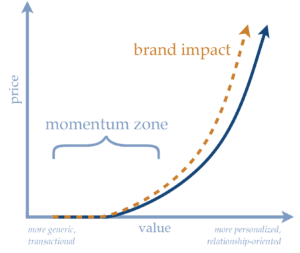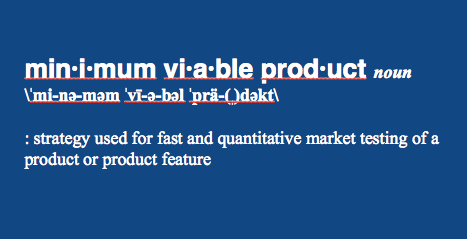If you’re looking for ways to grow and expand your education business, perhaps you should take a look at what’s going on in the world of Internet marketing. Successful Internet marketers truly understand how communicate value and convert prospective customers (and nearly all of them, by the way, have gotten into the business of selling educational products).
In this episode of the Leading Learning podcast, we look at seven core practices of Internet marketers and how they might be emulated to grow and improve your learning business.
To tune in, just click below. To make sure you catch all of the future episodes, be sure to subscribe by RSS or on iTunes. And, if you like the podcast, be sure to give it a tweet!
Listen to the Show
Read the Show Notes
[00:18] – With the holidays upon us, we’re giving ourselves a little breathing room by going back into the archives to feature an episode from the past that we think deserves a second listen. Specifically, we are going to replay a conversation we had more than a year ago on some of the practices of Internet marketers and how they might apply to your learning business.
[00:45] – Our sponsor for this episode is Learning • Technology • Design™ (LTD), our annual virtual conference designed specifically for those who work in the business of lifelong learning, continuing education, and professional development. This will be our fourth time offering LTD, and we know from all the feedback we have received that past attendees have found it a unique and highly valuable experience.
We are also offering the opportunity to be a Patron for the event, an option that may be of interest to companies that serve learning businesses. And we would like to spotlight some of our current patrons including:
- 360factor (Oasis LMS)
- Authentic Learning Labs
- Avilar
- CommPartners
- Digitell
- Event Garde
- ReviewMyLMS
- Web Courseworks
Definitely do take the time to find out more about them because these companies have demonstrated their commitment to learning businesses by becoming Patrons, so we encourage you to support them.
7 Essential Rules of Successful Internet Marketers
[02:06] – Now to our conversation about Internet marketing and how a little knowledge of what successful Internet marketers do could go a long way in helping you to market your education business.
If you are a long-time subscriber to Leading Learning, you may remember some of what we cover here, but it is well worth reviewing. If you are newer to the podcast, welcome – we certainly hope you will subscribe if you have not already.
The term “Internet marketer” doesn’t mean just any old company or person who markets things online.
Rather, it applies specifically to entrepreneurs who make their living – and in some cases make a fortune – primarily through marketing and selling effectively online. For example, Jeff Walker, Brendon Burchard, or the guys over at Internet Business Mastery.
Many Internet marketers sell only digital products and have no physical store or offices.
Many don’t even have products of their own—they use affiliate programs to generate sales from other people’s products.
Whatever their specific approach to running an online business, there is a core set of rules that all of the successful Internet marketers follow:
[04:18] –
1. Value first
We talk about value often at Tagoras, and successful Internet marketers understand that one of the only ways to get and hold a prospective customer’s attention these days is by offering something valuable up front.
Often before they even ask for an e-mail or any other identifying information.
And real value—practical, actionable, types of resources that are freely available and without having to sign up for anything.
If you’re having any sort of difficulty with your learning business among any of your offerings, we encourage you to look at value.
Are you actually offering something of value and what can you offer that helps lead people logically to sign up for that course or make that enrollment purchase, etc.?
We’ll note this is the momentum area of the Value Ramp.

[07:20] –
2. The money is in the list
E-mail comes in for a lot of criticism these days, but there is still no more effective way to sell on the Internet than by landing in someone’s inbox.
E-mail remains by far the biggest driver of education sales.
If you’re a membership organization, you have your membership email list but many times organizations don’t cultivate and manage that list in the way they need to – the list needs to be tended to and segmented to make sure the people you are communicating with want to hear from you.
If you don’t have a membership list, you should be actively doing everything you can to get people to sign up for your list.
You want a list with the right people on it and when you’re communicating with them, make sure you’re consistently giving them something of value so they are interested in continuing to hear from you – which translates to them sometimes buying from you.
[10:38] –
3. Teaching sells
If you are in the learning business, then education is what you sell.
But, of course, education itself is also a powerful selling tool.
Education-based marketing has been around for a long time, but the Internet has turned into an absolutely essential tool for all types of businesses.
As a way to deliver value first (see #1 above), share useful knowledge with customers and show them how to apply it.
Ironically, we find that organizations that are in the education business are often not that great at doing this. You won’t even find free demo courses on many of their Web sites, much less other materials that could help educate the prospective member or customer.
If there is free educational content available, if is often behind a member pay wall which means prospective members who could be getting on a list aren’t even going to be aware of you or what you offer.
[12:37] –
4. Testing teaches
One of the many reasons to put high-value educational content in front of your prospects is that it gives you a chance to test the market so you can see what really resonates.
Knowing this can help tremendously with developing and honing your product strategy.
And there are many ways in which Internet marketers test their markets. Running simple A/B split tests on e-mails and sales landing pages, for example, is standard operating procedure for all successful Internet marketers.
Even if you don’t have the responsibility or desire to get this technical, you need to make sure there are people in your organization who know how to run these sorts of tests and who are doing it.
If you don’t have staff comfortable with using these kinds of tools, there are plenty of contractors on sites such as Upwork who can do the job.
And consider, also, the minimum viable product – a concept we have discussed in numerous blog posts and Webinars.
The idea is not to try to build the perfect product or event right out of the gate, but to get into the market with something good enough to please most of your customers.
Then, get feedback and continue building from there.
For additional thoughts, see:
[16:13] –
5. Emotion rules
This is an important point we make whenever we discuss the principles of pricing, and it applies broadly when thinking about business strategy.
Value is about perception, and perception is very often driven more by emotion than logic.
Successful Internet marketers know how to weave themselves and their products into a story that resonates with the prospective buyer.
They don’t sell products so much as they sell the outcomes: more freedom, self-sufficiency, better health, etc.
Organizations often forget this point when they focus too much on the amount of credit that can be earned for a course, or “convenience,” or the “timeliness” of the information provided.
While all of these may be benefits, they have little or no emotional pull (and, for that matter, they tend to be easy for competitors to replicate).
Figuring out an emotional connection can be tough – which is why it probably doesn’t happen all that often. You can make guesses about what matters to your learners, but the only way to be confident you have it right is to observe and listen.
This is where the good marketers really stand out because if you can master the emotional side of the picture, it can be very powerful.
[19:52] –
6. Words matter
We all know that attention is a precious resource these days. Whether a prospect is surfing the Web, opening an envelope, or checking her inbox, you typically have a matter of seconds – or, in many cases, milliseconds – during which she will decide whether or not to pay attention to you.
Your choice of words in that brief time can make the difference between starting a long-term relationship or simply racking up another “bounce” – the term used for when Web site visitors leave after having visited only one page.
Arguably even more important, once you have a prospect’s attention, you need to make it count. You need to convert them.
Here again, the words you use matter dramatically.
How do you convey value (see #1) as rapidly and effectively as possible and convince the prospect to take action, whether that means actually making a purchase or simply signing up for an e-mail list (see #2)?
Successful Internet marketers recognize that they either need to master the skills of great copywriting, or they need to hire people who have already mastered those skills.
For the second route, a site like Upwork is great resource.
Even if you go this route, though, it is still highly recommend that you school yourself in the fundamentals of good copywriting as doing so will prepare you to deal more effectively with contractors.
Two classic books related to this that we consider essential are:
- Tested Advertising Methods by John Caples
- How to Write a Good Advertisement by Victor Schwab
While these two books are focused on advertising, the knowledge shared in them applies to copywriting broadly.
Also, check out the wealth of free and paid resources available through Copyblogger, a company that has built its business based on recognizing exactly how important good copywriting is these days.
The Copywriting 101 articles are particularly helpful.
[22:19] –
7. No process, no business
Finally, while you will find that many Internet marketers talk a lot about big product “launches,” the best of them are in it for the long haul and are intensely focused on building scalable, sustainable businesses.
They tend to be masters of efficiency and are always looking for ways to grow revenue and profitability while minimizing labor. They are forever creating repeatable formulas, processes, and systems that drive their businesses.
Very often they share all or at least significant parts of these processes and systems. They know that creating content once (usually starting from video) and then leveraging the heck out of it (through editing, extracting audio, creating transcripts for print products, etc.) is one of the most powerful ways to scale a knowledge and education business.
And, again, they have processes in place for doing this. Internet marketers also tend to bake continuous contact with customers into their systems and processes so that they are always tuned into what’s working and what’s not and what may represent the next big opportunity.
In short, they recognize that great products are only part of the equation.
Without efficient, scalable processes, you really don’t have much of a business.
For additional resources related to this, see:
- John Jantsch’s Total Content System
- Invisible Selling Machine by Ryan Deiss
Recap
[25:00] -So those are the key rules that you will find pretty much any successful marketer follows.
It is important to note in closing, that they follow them consciously.
Successful Internet marketers tend to be very clear about their overall strategy and very deliberate in how they proceed with executing that strategy.
Strategy provides the context that makes the rules work.
If you need help with your strategic clarity, check out some of our resources on the topic of strategy.
[27:11] – Wrap Up
If you are getting value from the Leading Learning podcast, be sure to subscribe by RSS or on iTunes and we would be truly grateful, as it helps us get some data on the impact of what we’re doing.
We’d also appreciate if you give us a rating on iTunes by going to https://www.leadinglearning.com/apple. We personally appreciate your rating and review, but more importantly reviews and ratings play an important role in helping the podcast show up when people search for content on learning and leading.
And we would be grateful if you check out our sponsor for this episode Learning • Technology • Design™ (LTD). Again, this is our annual virtual conference and if you, like most of our Leading Learning listeners, work in the business of lifelong learning, continuing education, and professional development, it is an event not to be missed.
Finally, consider telling others about the podcast. You can send a tweet by going to leadinglearning.com/share. You can also Like us on Facebook at facebook.com/leadinglifelonglearning and share us with others there. However you do it, please do help to share the good word about Leading Learning.
[29:20] – Sign off
See Also:




 Learning Business Trends & Predictions 2019
Learning Business Trends & Predictions 2019
Leave a Reply